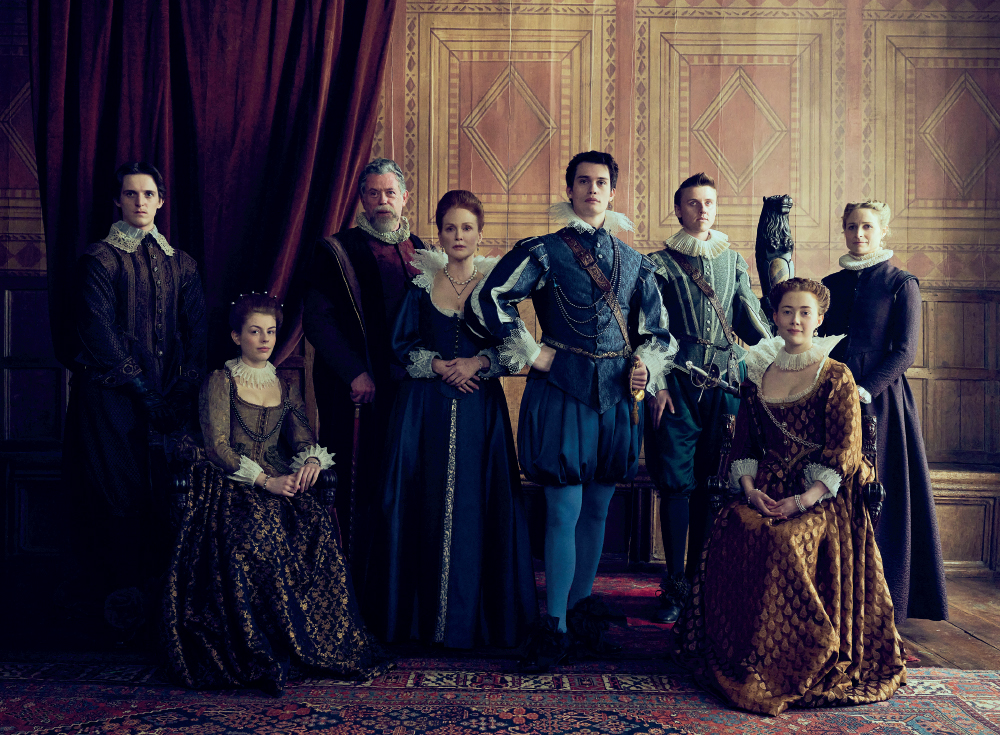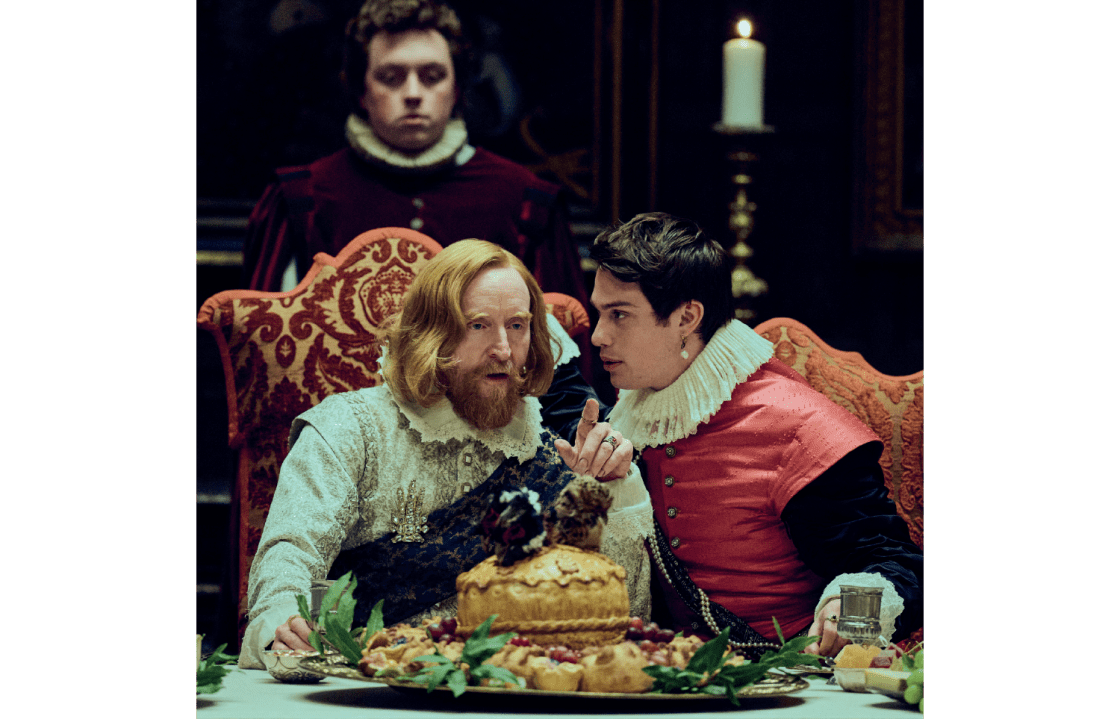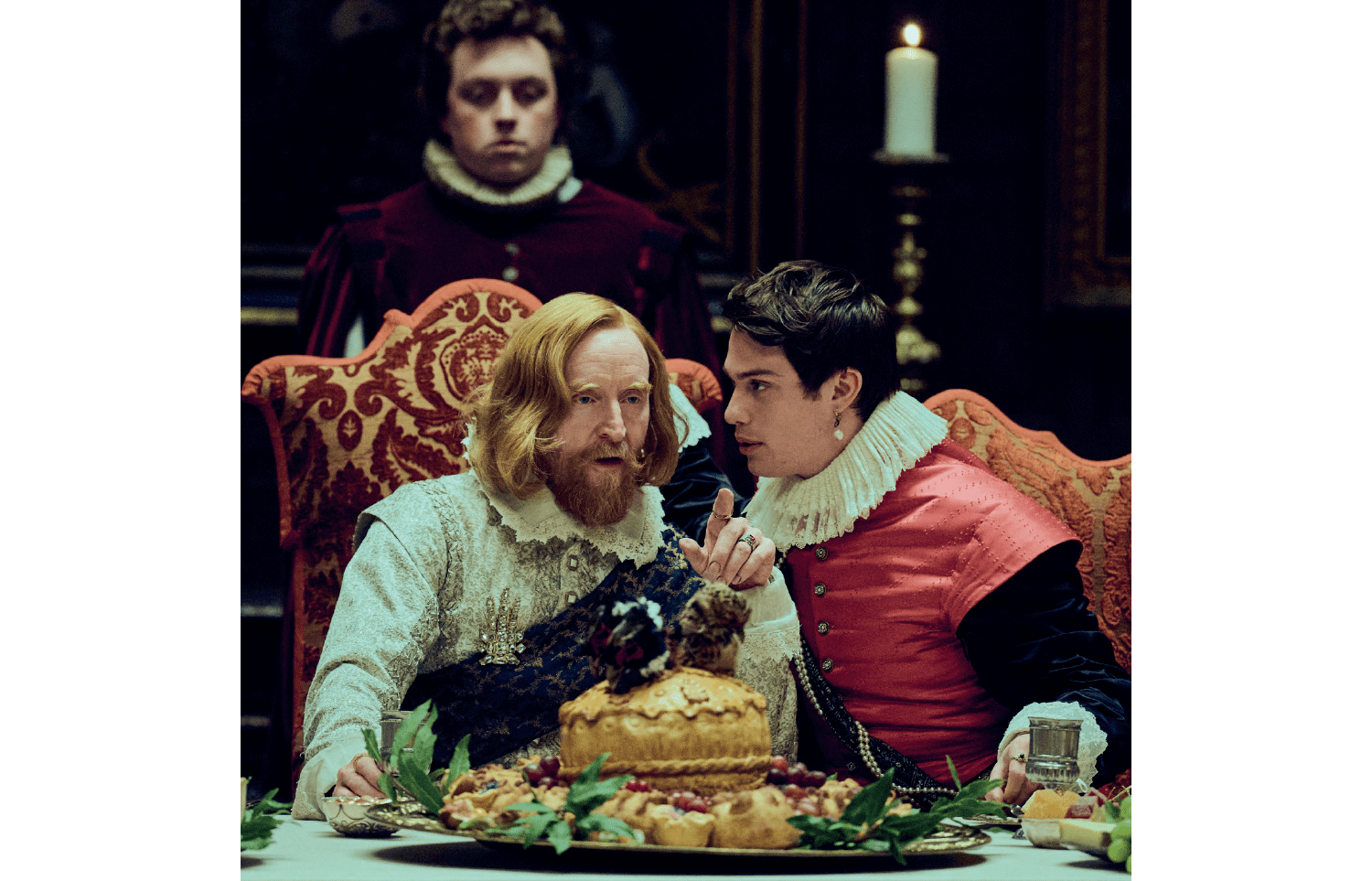If there’s such a thing as a workmanlike romp, then Mary & George might be one. This drama about political and sexual shenanigans during the reign of James I certainly has all the scheming, racy dialogue and nudity that any romp-lover could wish for. At the same time, there’s the slightly awkward sense that it’s harbouring a guilty secret: it wants to be taken seriously as history and thinks it has some important things to say about class, gender and sexuality in 17th-century England and beyond. As a result, the naughty stuff – while definitely naughty – occasionally feels rather dutiful, and the playfulness somehow rather solemn. (‘It’s really interesting having women and queer characters at the centre of the narrative,’ says the executive producer – even though it’s hard to think of any recent drama that doesn’t.)
The Mary of the title is Mary Villiers, played with suitable film-star charisma by Julianne Moore. In this version, Mary was born into poverty but married her way up by means of the violent, syphilitic George Villiers, who survived long enough in the show for Simon Russell Beale to demonstrate that he can ham it up with the best of them.
After her husband’s unlamented death, Mary duly headed off to ensnare another rich oldie, Sir Thomas Compton. But, given the boy’s irresistible handsomeness, her real hopes of power lay with her son George – because, as she put it in one of the more transparently serious moments, ‘bodies are currency’. Now all she had to do was send him to France to learn the courtly refinements he’d need to bag a high-born wife.

Initially, having fallen in love with a servant called Jenny, George wasn’t keen on the plan – and so preferred to attempt suicide instead. But of course something as minor as that was never going to change his mother’s mind, and before long a French gallant was welcoming him to a château notable for both its splendour and the fact that an orgy was taking place in every room. There, George was instructed in such 17th-century arts as fencing (and such 21st-century ones as learning to ‘own your body’). But as it transpired, George’s earlier sex scene with Jenny had contained a Chekhov’s gun. ‘I see you looking at the stable lads,’ she told him. ‘Do you like boys as well?’ After a few weeks with the hunky gallant, the answer proved a firm and sombrely enacted ‘Yes’.
Meanwhile, back in Blighty, Sir Thomas and Mary were forced to entertain King James I as a house guest, despite Sir Thomas’s view that His Majesty was ‘a horny-handed horror who surrounds himself with well-hung beauties’. He also advised his wife not to try to seduce James, on the solid grounds that she had ‘one too few penises and two too many tits’. At which romp-like point, one of the King’s advisers suddenly gave Mary (and us) a handy lecture on the wider political context in which to view the desirability of her son becoming James’s new favourite.
And so, on his return from France, George was paraded before the King as a cup-bearer. ‘Are you pleased with me?’ he asked his mother afterwards, seemingly cleansed of all resentment towards her. ‘As the snake when Eve ate her dark fruit,’ Mary replied: a line that in many dramas would have been unambiguously camp, but in Mary & George might just have been serious.
Apparently, Robert Thorogood, the creator of Death in Paradise, pitched the idea for The Marlow Murder Club before Richard Osman conquered the publishing world with the undeniably similar Thursday Murder Club – although obviously you could argue that Agatha Christie got there first with Miss Marple. The main character is Judith Potts (Samantha Bond, clearly having a ball), a crossword-compiler, retired archaeologist and big fan of travel sweets, living quietly in a Thameside manor house with, naturally, her cat. But the quiet was then broken when a neighbour was shot dead. And with that, as you might imagine, Judith sprang into the sort of investigating action that meant she was always several steps ahead of the police, whose main role was to shake their heads with exasperation, reluctant admiration and whole-hearted respect, successively.
As the death toll mounted and the red herrings piled up, Judith acquired two sidekicks in the form of under-appreciated, middle-aged vicar’s wife Becks and under-appreciated, middle-aged dog-walker Suzie. The trio soon formed the most inevitable of unlikely friendships as they sleuthed away on the not-terribly-mean streets of Buckinghamshire.
In the gently comic, gently intriguing circumstances, the climax of this four-hour two-parter was perhaps a little overwrought. Nonetheless, the programme as a whole was happy proof that Thorogood hasn’t lost his touch for charming, ingeniously plotted crime dramas that winningly confirm how overrated plausibility can be.







Comments